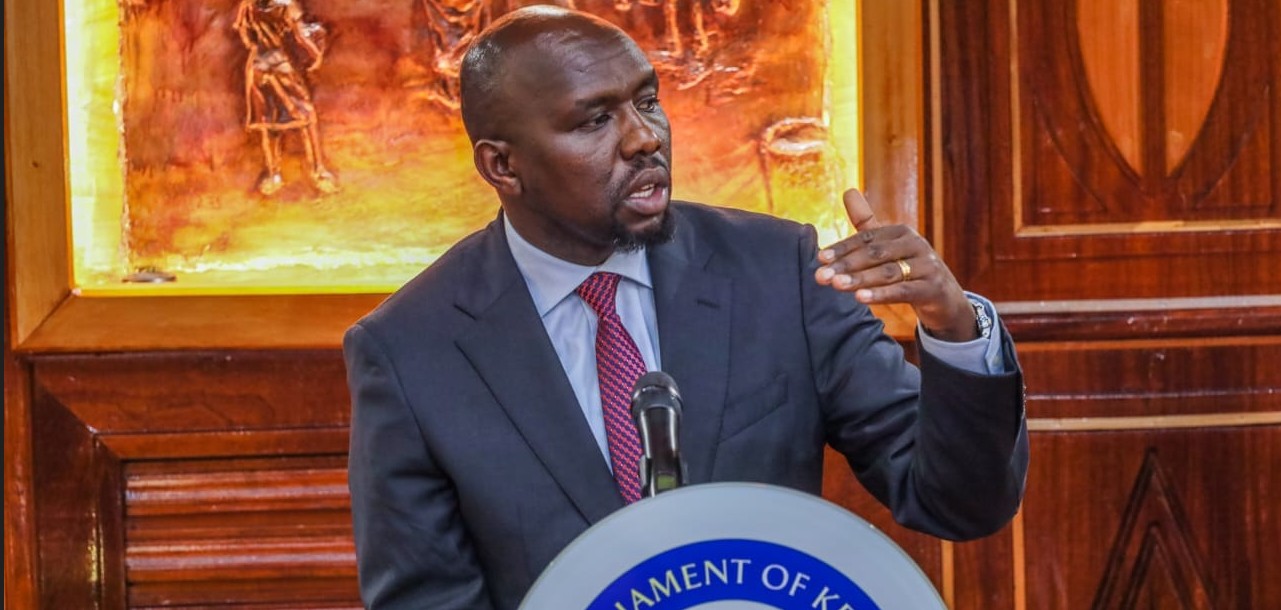Ruto faults Judiciary over anticipatory bail, says it shields corrupt individuals

Ruto criticised what he described as weak legal precedents that protect corrupt individuals from facing justice, singling out anticipatory bail as a legal loophole allegedly abused by those accused of stealing public funds.
President William Ruto has urged the Judiciary to stop shielding individuals accused of corruption through anticipatory bail, warning that such orders hinder arrests and prosecutions, thereby undermining the fight against graft.
Speaking on Wednesday during the Biennial Devolution Conference in Homa Bay, Ruto challenged the Judiciary “not to be a haven for the corrupt to hide behind judicial decisions.”
More To Read
- Judiciary paid Sh14 billion in staff compensation without records for 2,180 employees - Auditor General
- Auditor General flags Judiciary for underutilising Sh520.4 million
- Judiciary defends bail procedures after death of Saba Saba protester Julia Njoki
- JSC receives over 2,600 applications in major recruitment drive for judicial officers
- Kenya's Supreme Court to begin six-week August recess
- EACC seeks transfer of Thika Magistrate Stella Atambo's case to Anti-Corruption Court
“A corrupt person goes to court and gets anticipatory bail. This makes it impossible for such a person to be arrested and prosecuted. How does that help fight corruption?” he posed.
Ruto criticised what he described as weak legal precedents that protect corrupt individuals from facing justice, singling out anticipatory bail as a legal loophole allegedly abused by those accused of stealing public funds.
“There is an innovation called anticipatory bail, which only happens in Kenya, allowing those accused of stealing public funds to evade prosecution. This takes us backwards,” he said.
The President stressed that transformation efforts are being undermined by corruption, urging the government to ensure public resources are used as intended.
“No facility should charge citizens for a service that has already been paid for by the government. Without a doubt, technology can cut waste and boost efficiency,” Ruto added.
He cited the expansion of the e-Citizen platform from a few services in 2013 to a 24/7 one-stop shop now offering over 22,000 government services worldwide. Currently, more than 14 million Kenyans are registered, with 500,000 logging in daily for services such as passports, licences, business registrations, land transactions and certificates, all without queues, intermediaries or unnecessary bureaucracy.
Despite his apparent frustration, Ruto insisted that corrupt leaders must be held accountable and that no ‘calls from above’ would be made to save suspects.
“The Ethics and Anti-Corruption Commission (EACC) must take up its role. I have made it absolutely clear that there will be no sacred cows and no telephone calls from anywhere, below or above, to stop anybody from being prosecuted for corruption,” he said.
His remarks come weeks after the Judicial Service Commission (JSC) condemned what it termed an “escalating trend” of public vilification and personal attacks against judges, particularly over bail and bond rulings.
In a statement by its secretary, Winfridah Mokaya, the JSC expressed “grave concern” over reactions to recent decisions by the Nanyuki and Kahawa Law Courts.
In Nanyuki, 111 people arrested over the July 7 Saba Saba protests in Laikipia County were released on Sh50,000 cash bail each after being charged with malicious damage to property. Some were reportedly arrested on the eve of the demonstrations.
In Kahawa, 37 youth charged with terrorism, related offences over the June 25 and July 7 protests were also released on a Sh50,000 cash bail or an alternative bond of Sh200,000 each.
Critics, including former Chief Justice David Maraga, questioned the use of terrorism charges against protesters, terming it an attempt to suppress dissent. On social media, some users called for the release of personal details of magistrates, judges and prosecutors involved in what they describe as “trumped-up” charges.
Mokaya cautioned that such attacks threaten judicial independence and erode public trust in the justice system.
“These decisions are guided by the Constitution, the Criminal Procedure Code and the Judiciary’s bail and bond policy guidelines,” she said, noting that judicial officers do not act arbitrarily.
She emphasised that dissatisfied parties should appeal or seek reviews through legal channels rather than resort to personal attacks, adding that necessary security arrangements for judicial officers are in place through the Judiciary Police Unit.
“The commission reaffirms its unwavering commitment to defending the decisional independence of all judicial officers and judges,” Mokaya said.
Top Stories Today










































